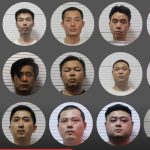Nigeria Independence Day is being celebrated every 1st October each year. This has been so since 1960 when the country gained freedom from British colonial rule.
The day has been enshrined in the constitution as a national holiday. Public and private offices, schools, businesses, including banks, are being closed on that day – giving everyone an equal opportunity to celebrate the independence day.
The celebration is usually routine as it begins with a presidential speech broadcast nationwide. Across the country, parades bring joy and colour to the streets. Schoolchildren wear the national colours green and white and march proudly in local processions. Likewise, in Abuja, the Federal Capital Territory (FCT), the civil-military parades around Eagle Square, showcasing marching bands and breathtaking aerial flyovers.
Many Nigerians also celebrate their shared heritage and the nation’s cultural diversity by wearing outfits from various cultures or by sharing a meal of suya (spicy beef skewer) or jollof rice. To end the night, people gather to watch fireworks light up the sky.
In recent years public disillusionment has led to muted celebrations, due to the state of the economy and lingering ethnic tensions.
Also referred to as 1st October or October 1st, Nigeria Independence Day was first celebrated in 1960, when Lieutenant David Ejoor, who later became the Chief of Army Staff, had the honour of commanding the guard at the midnight flag-raising ceremony.
Painful as the Nigerian history before independence is, in 1914, the Southern Nigeria Protectorate was combined with the Northern Nigeria Protectorate to create the Colony and Protectorate of Nigeria, which has the borders of modern-day Nigeria.
By the late 1950s, the call for independence of territories in Africa and the decline of the British Empire led to the country being granted independence on 1st October 1960 as the Federation of Nigeria.
Three years later, the constitution was amended and the country was declared the Federal Republic of Nigeria with Nnamdi Azikiwe, previously Governor-General, as the first President.
Since then, an annual civil-military parade is held at Eagle Square, with top members of the Nigerian Presidential Cabinet being in attendance. At the event, the President, in his position as Commander-in-Chief, as well as the Commander of the Presidential Guard Brigade, inspect the guard of honour (mounted by the Nigerian Army, Navy, Air Force, Police Force, and the Security and Civil Defence Corps, among other paramilitary forces) in an inspection car. Music and salutes are provided by the massed bands of the Nigerian Armed Forces, led by the director of the Nigerian Army Band Corps. A 21-gun salute is fired by a detachment from the Army Artillery Regiment as the event is brought to a close.
The day is also celebrated across several countries of the world. In New York, United States, Nigeria’s Independence Day has been marked by celebrations in the streets since 1991. The celebrations in the United States are the largest celebrations outside of Nigeria and usually attract around 75,000 people every year.
Despite the ups and downs, the county has one of the highest growing populations with an estimated number of 200 million people, which makes it the most populous black nation in the world and the most populous country in Africa.
At the time of filing this report today, Tuesday, 1st October 2024, Nigeria is celebrating 64 years of independence from British rule.





